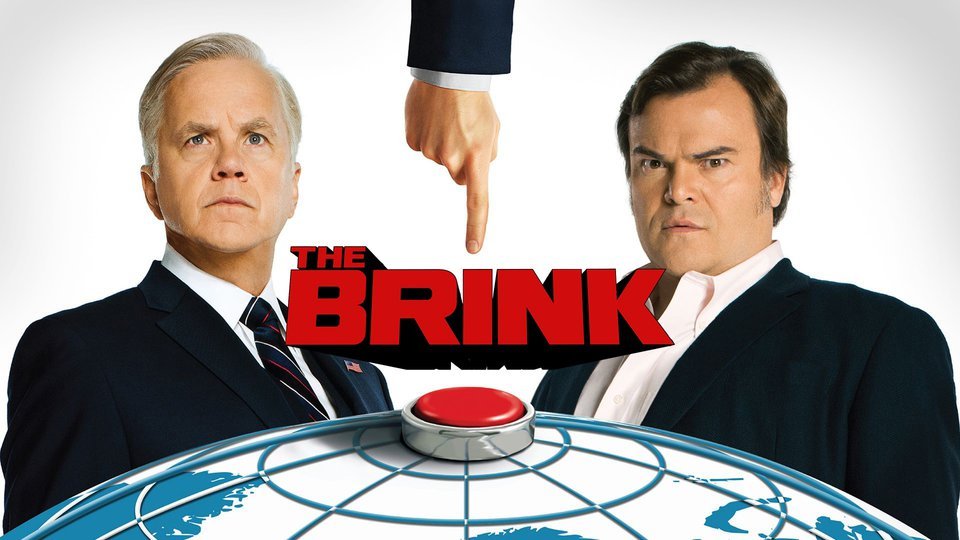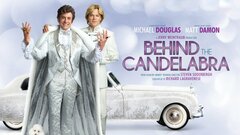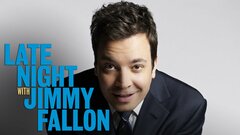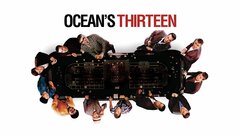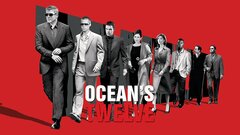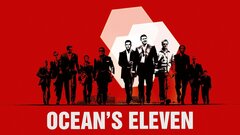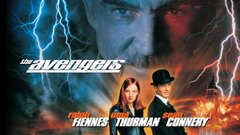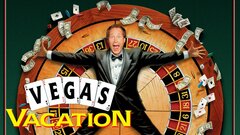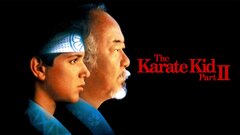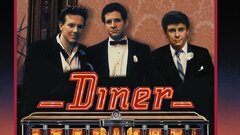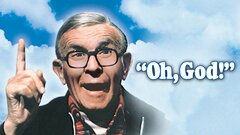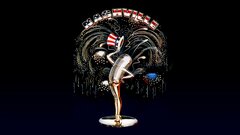The man behind films ranging from "Nashville" through the recent "Ocean's Eleven" series - not to mention countless Broadway shows and concerts, including a history-making nationwide tour by Elvis Presley - Jerry Weintraub fit the bill of "producer" in the most classically recognized sense. He was silver-haired, lightly tanned, and perennially optimistic, yet incredibly superstitious, carefully avoiding talking too much about the past or the future - a lamentable choice considering the stories he could have told. Perhaps knowing all too well how easily the best assembled plans could suddenly fall apart, Weintraub often referred to himself as simply very lucky in his Hollywood success. He was however, being modest, as his sheer output of quality projects through the years more than backed up his standing as one of the best producers in town. His death from a heart attack on July 6, 2015 ended the reign of one of Hollywood's most beloved producers.
Born Sept. 26, 1937, Weintraub grew up in the Bronx, NY. Upon graduating from high school, he enlisted in the United States Air Force. Afterward, he came back to New York City and entered show business, immediately landing a job as a page for NBC television on the popular "The Steve Allen Show" (1956-60). By day, he studied acting at the Neighborhood Playhouse. Over time, he found that his talents were more suited to the business and managerial end of entertainment, as opposed to the performing side. He stopped acting and found a day job in the mailroom at the William Morris Agency, all while maintaining his NBC job at night.
After just three weeks in the mailroom, the enterprising and ambitious Weintraub heard of an opening for an agent at the competing MCA talent agency. Having nothing to lose, he applied for and got the job.
Still in his early twenties, Weintraub worked for MCA for a few years, before breaking off and forming his own management company, which specialized in musical acts and recording artists such as Joey Bishop, The Four Tops, and singer Jane Morgan, with whom he fell in love and later married. After some time, Weintraub met another ambitious manager, Bernie Brillstein, and - along with Marty Kummer - they formed their own company, Management III. The three managers took New York City by storm, with Weintraub intent on crafting an image of affluence at the company, banking on the idea that amenities around the office - down to curtains that opened at the push of a button - would be instrumental at conveying their credibility as they signed bigger and bigger stars. It was the beginning of an era of managers moving from frumpy tweed jackets to Rolls Royces. The firm was a success, and began taking on superstar clients of the day such as Norm Crosby, Jack Paar and Jim Henson and the Muppets.
Soon, Weintraub began to branch into setting up concerts and revues on Broadway, as well as moving into producing stage shows and buying theaters. The company mounted such shows as "Frank Sinatra, Count Basie and Ella Fitzgerald on Broadway," and stage productions of "Canterbury Tales" and "Wait a Minimum," before the three men eventually parted ways. Weintraub again embarked on his own.
One fateful night during this time, Weintraub woke up from a vivid dream where he saw his name on a marquee, promoting Elvis Presley - by then, a larger-than-life artist all but shrouded under the highly protective eye of his infamous manager, Colonel Tom Parker. Convinced that the dream was his fate, Weintraub started calling Parker on a daily basis, insisting he wanted to promote Presley on a tour across the U.S.A. - even though Parker did not have the faintest idea who he was, shooting him down every time. Finally, his persistence paid off, and Parker agreed - but it was barely half the battle.
Parker called Weintraub's bluff, insisting that he show up in Las Vegas the very next day with $1 million dollars in cash. Despite owing the bank $65,000, Weintraub readily agreed, convinced that he again had nothing to lose. Calling in every favor he could well into the middle of the night, he finally was promised by a friend of a friend that he could get him the money wired to a bank account in Las Vegas the next day. Weintraub caught the first flight out he could, picked up the money, and met up with the legendary Parker, who went on to introduce Weintraub to Presley. In an instant, Weintraub's life was transformed - Presley agreed to the tour and the fledgling producer became a millionaire virtually overnight.
With Presley's hugely popular tour under his belt, Weintraub began promoting concerts for such superstars as Bob Dylan, Led Zeppelin, and the Beach Boys. He made history again with the 1974 Frank Sinatra "Main Event" concert at Madison Square Garden, promoted as the first to be beamed around the world by satellite. He had earned such a reputation as a man who could "get things done," that then-young director Robert Altman, approached him to produce his screenplay for "Nashville." Weintraub would later say that he could not make heads or tails of the script, but was intrigued by the challenge, managing to raise the $1.8 million that Altman budgeted. The highly acclaimed 1975 film, a complexly textured ensemble satire about America's obsession with celebrity and power set in the nation's country music capitol, went on to become an icon of 1970s cinema. Consequently, Weintraub's Hollywood career was born.
Not quite done with the music bug that had bitten him early on, Weintraub went on to produce a number of television music specials, featuring Neil Diamond, Dorothy Hamill and John Denver. But features continued to beckon - with Weintraub producing a string of movies from noteworthy directors, beginning with the Carl Reiner comedy, "Oh God!" (1977) starring John Denver and George Burns in the title role, and the William Friedkin-directed "Cruising," (1980) with Al Pacino as an cop going undercover into the gay subculture of New York City. The latter film stirred up more than its fair share of controversy. He also proved his producing mettle by working on the Barry Levinson coming-of-age classic, "Diner," (1982) which went on to launch the careers of Kevin Bacon, Paul Reiser and Ellen Barkin. Continuing his string of crowd-pleasers, Weintraub then produced the highly popular "Karate Kid," (1984) starring Ralph Macchio and Pat Morita, which went on to spawn three sequels and become an underdog-does-good classic, much like its closest cinematic cousin, "Rocky" (1976) years earlier.
Due in no small part to his box office success, show business mogul Kirk Kerkorian offered Weintraub the job of running United Artists Studios. After a brief stint in the corporate job, he went back to producing, forming his own company, Weintraub Productions at Warner Bros. His first several productions were a torturous series of missteps; they included the Sylvester Stallone flop, "The Specialist," (1994); the brutally unfunny third installment of the Chevy Chase/National Lampoon franchise, "Vegas Vacation," (1997); and "The Avengers," (1998), an adaptation of the once popular British espionage series of the same name, which failed to catch on with audiences.
In 2001, Weintraub proved he still had the magic when he made a bold comeback with "Ocean's Eleven" - a critical and crowd-pleasing hit remake of the original Rat Pack film of the 1960s. With its all-star dream cast of hunky leads, George Clooney, Brad Pitt and Matt Damon, as well as old-school notables Carl Reiner and Elliot Gould, the remake all but surpassed the 1960 original. Such was its success, it spawned two sequels: "Oceans 12," set in Europe, which many considered to be a disappointing follow-up; and "Ocean's Thirteen," a return to the Las Vegas-set swagger of the first installment. At the same time Weintraub was enjoying his "Ocean's Thirteen" boy's club success, he turned to the "tween" girl set by producing a big screen version of "Nancy Drew," (2007) an adaptation of the timeless teenage mysteries by Carolyn Keene that almost every young girl since the 1920s grew up reading. Starring Emma Roberts, the niece of Julia Roberts, the film was a switch from Weintraub's usual adult fare, but would resonate with young girls, eager for their own big screen franchise.
Weintraub returned to one of his most successful projects with the reboot of "The Karate Kid" (2010) starring Jaden Smith and Jackie Chan. Two years later, he executive-produced "41" (2012), a biography of his dear friend George H.W. Bush. His next executive producer credits came with Steven Soderbergh's gleefully over the top Liberace tale "Behind the Candelabra" (HBO 2013) (starring Michael Douglas as the Vegas showman and Matt Damon as his chauffeur turned lover Scott Thorson) and the hockey documentary "Red Army" (2014), telling the tale of the 1980 Olympics "Miracle On Ice" final from the losing Soviet side.
Weintraub returned to television as the executive producer of the documentary series "Years of Living Dangerously" (Showtime 2014) and in the same role on "The Brink" (HBO 2015), a political comedy starring Tim Robbins and Jack Black. Sticking with the cable network, Weintraub executive produced "Westworld" (HBO 2016- ), a reboot of the Michael Crichton thriller about a futuristic theme park. JErry Weintraub died of a heart attack at his home in Palm Springs, California on July 6, 2015. He was 77.




